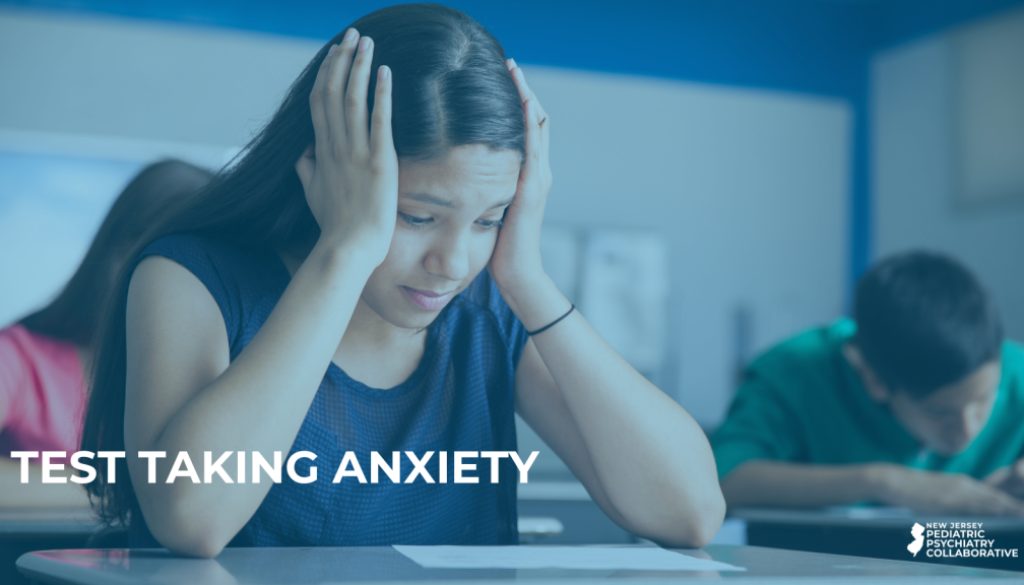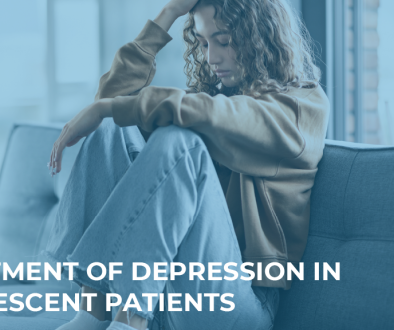Test Taking Anxiety
By Saranga Bhalla, DO
As physicians, we have all taken numerous exams throughout our lives so we know what test related anxiety feels like. Mild test taking anxiety is normal and common. By some estimates, 40% of students experience test anxiety (1). At times, that anxiety can actually be helpful as the heightened physiological response may improve our motivation to study, help us focus and be more productive. Anxiety is our body’s way of communicating that there is danger in our environment and leads to our “fight or flight” response. However, that exaggerated response to taking a test when there is no actual danger, also has negative consequences. According to Nathaniel von der Embse, an assistant professor of school psychology at the University of South Florida, his 30 year review of test anxiety published in 2018, showed that test anxiety correlates with negative educational outcomes, especially in the middle grades.
So how can you tell if a child has typical anxiety before a test or if this is something more? Usually these are kids where the worrying is so prominent that it interferes academically, behaviorally and/or emotionally. Not all kids will verbalize they are worried about an upcoming exam. You should look for certain signs such as school avoidance on the day of the test, stomach distress, headaches, and/or difficulty sleeping. While academic decline may be an indicator of test anxiety, it’s important to remember that many students who have A grades and are perfectionistic also worry about their performance.
Research shows parental pressure is associated with greater worry, irrelevant thoughts, and stronger physical symptoms relating to anxiety during tests (3). Other causes include procrastination of studying, fear of failure, and poor performance on a previous test (4). Students with disabilities and students in gifted/honors classes tend to experience high rates of test anxiety (2).
According to Dr. von der Embse, there are 3 phases of test anxiety. The 1st phase occurs before the exam. “Test anxiety is really a cognitive, emotional and physical reaction to evaluation and the consequences of evaluation,” he says. Parents and teachers can help by explaining the purpose of the test and how the results will be used. Parents can also help by not emphasizing the date of the exam. According to therapist Jane Pernotto Ehrman, “The pressures for students around test anxiety are both internal and external,” she said. “It starts externally with parents saying you’ve got to eat well, go to bed early, you’ve got a big test tomorrow.” Instead, there should be a focus on everyday lifestyle routines such as maintaining a healthy diet, getting adequate sleep nightly, and engaging in effective study habits. Additionally, focusing on effort rather than results can help reduce the pressure kids feel around testing.
The 2nd phase is during the actual exam when anxiety can lead to shallow breathing, breath holding, heart racing and/or sweating. This can negatively affect focus, attention span, and memory, leading to further anxiety. Teaching kids deep breathing, mindfulness, and other relaxation strategies can help reduce physical symptoms of anxiety. For example, having a child practice breathing in for four seconds, holding for four seconds, and exhaling for four seconds can help control the anxiety.
The 3rd phase is after the exam. According to Dr. von der Embse, this phase is often overlooked but can be a way for parents and kids to talk about the test results and what they are used for.
Shannon Brady, an assistant professor of psychology at Wake Forest University, believes the goal is learning to manage stress, and not simply reduce it. She believes that rethinking stress can be very helpful for both children and parents. Dr. von der Embse believes parents, teachers, and school psychologists can educate kids on the signs and symptoms of test anxiety and then teach them strategies on how to manage those feelings.
Of course, these measures may not be enough for everyone. Students who have taken the above steps to prepare for tests but still suffer severe anxiety at the idea of them should consult a mental-health professional.
Author Profile:

Saranga Bhalla, DO
Board-Certified Child & Adolescent, and Adult Psychiatrist
Princeton Mental Health, LLC.
REFERENCES:
(1) December 14, 2023/Living Healthy/Children’s Health- Cleveland Clinic How To Help Your Child Overcome Test Anxiety by Ethan Benore, M.D.
(2) Nelson, J.M.; Harwood, H. (2011). “Learning disabilities and anxiety: A meta-analysis.” Journal of Learning Disabilities. 44 (1): 3–17.
(3) Putwain, D.W., Woods, K.A., Symes, W. (2010). “Personal and situational predictors of test anxiety of students in post-compulsory education.” British Journal of Educational Psychology, 80, 137-160
(4) ADAA-Anxiety Disorder Association of America. “Test Anxiety” 26 April 2012
Journal of Affective Disorders- “Test anxiety effects, predictors, and correlates: A 30-year meta analytic review”; Nathaniel von der Embse, Dane Jester, Devlina Roy, James Post Volume 227, February 2018, Pages 483-493




